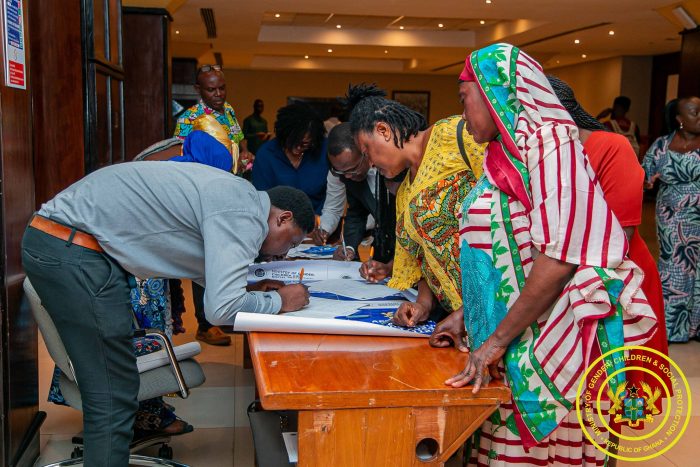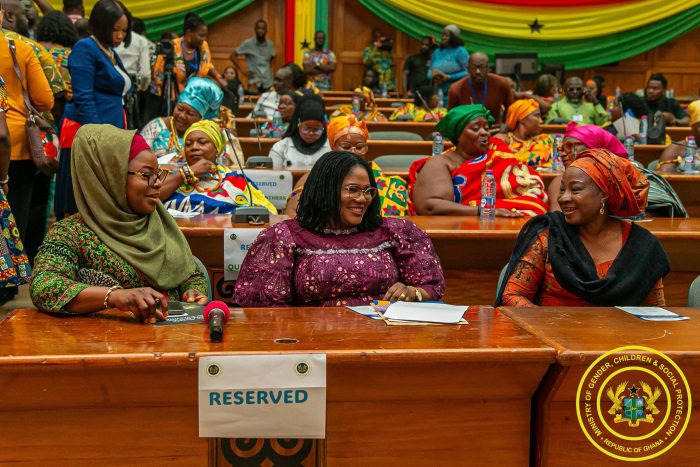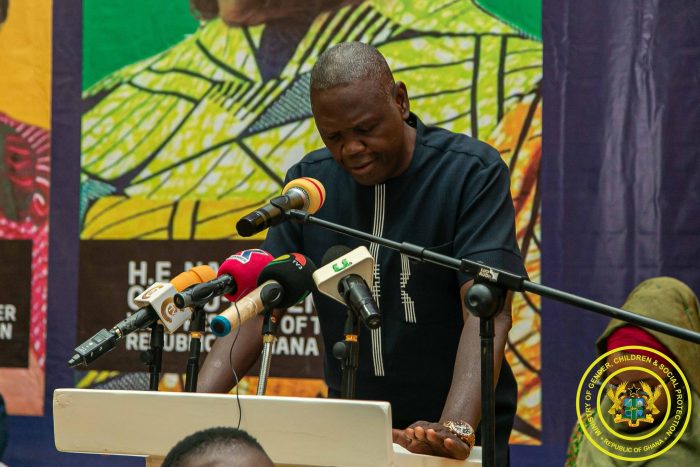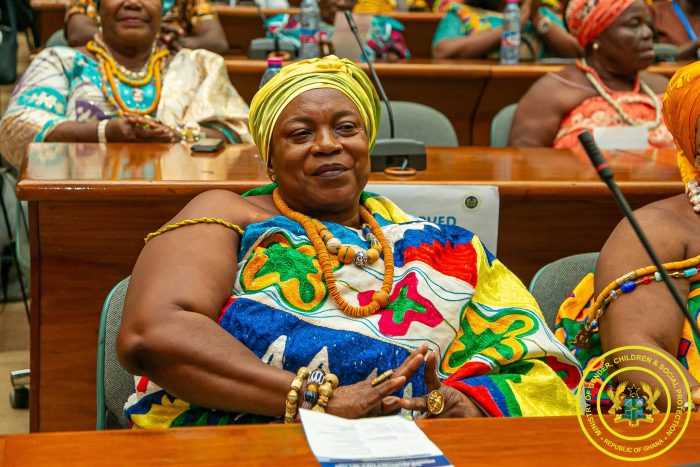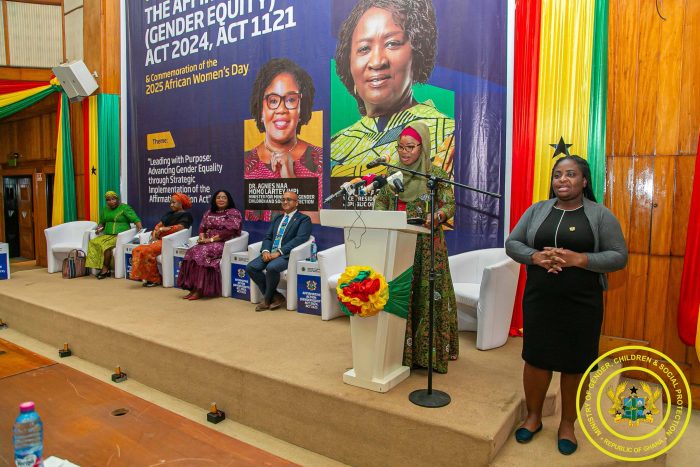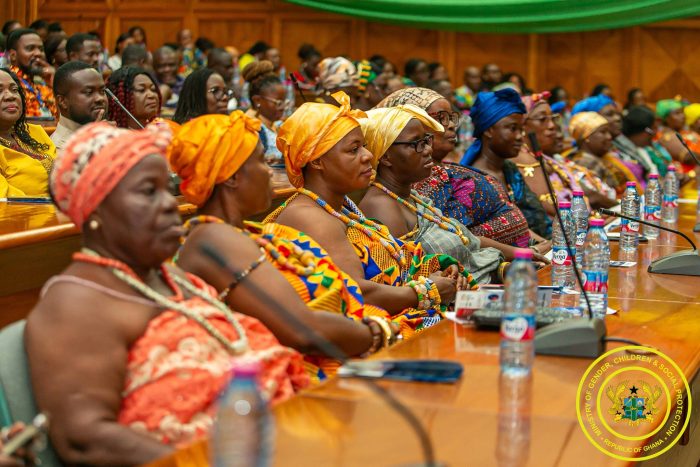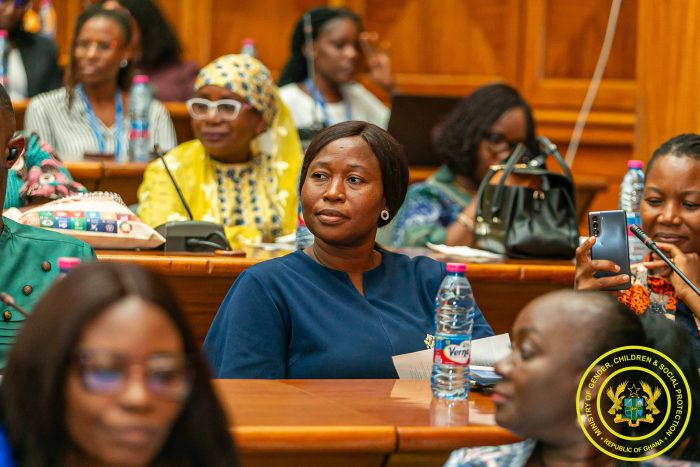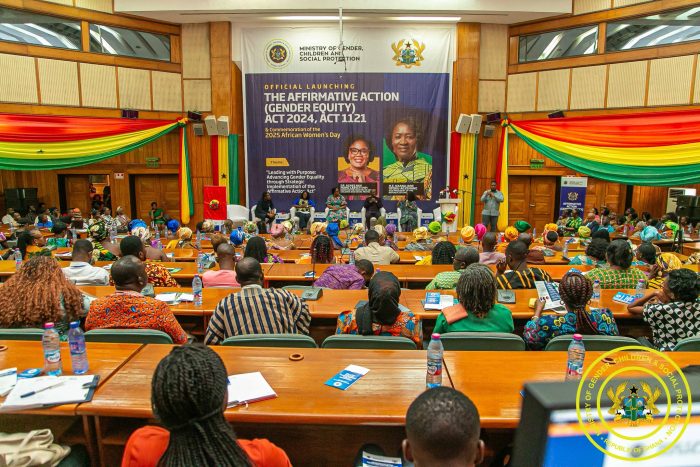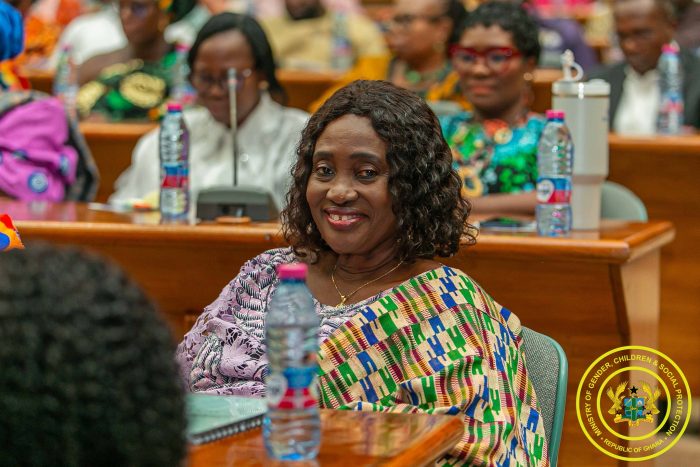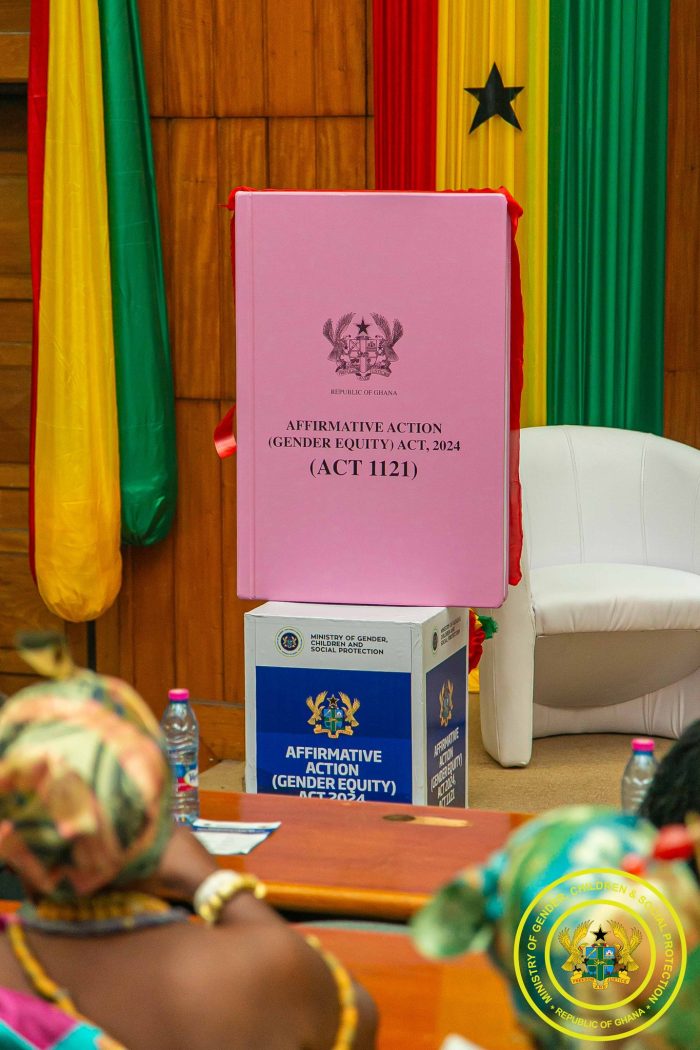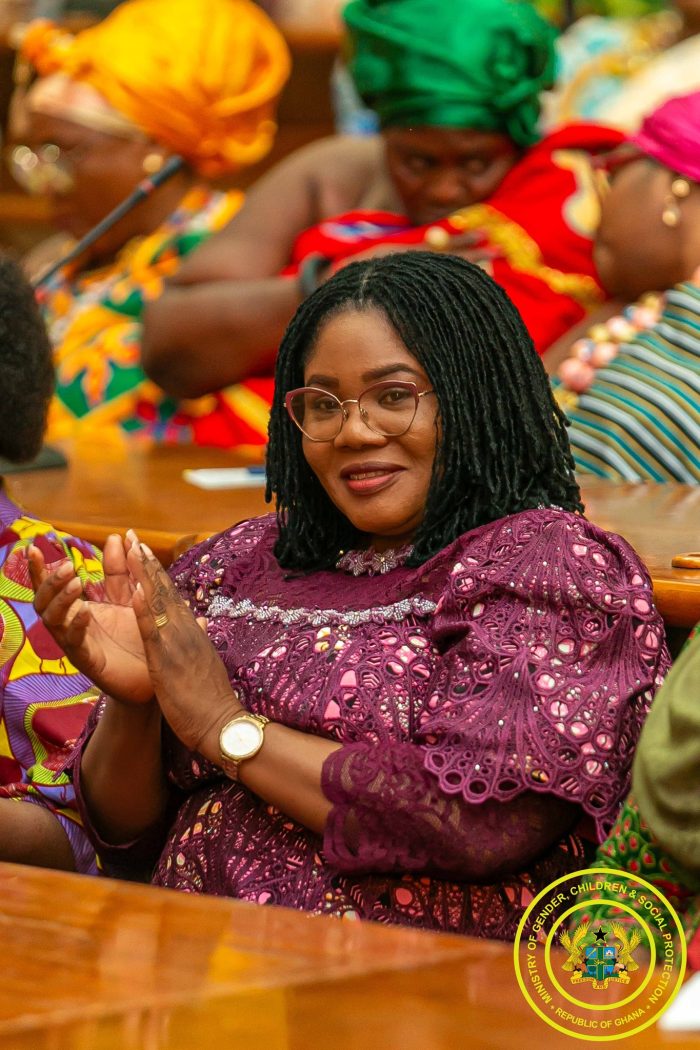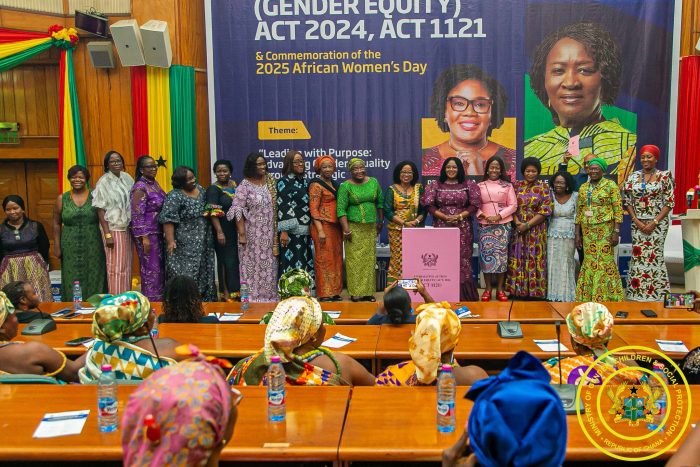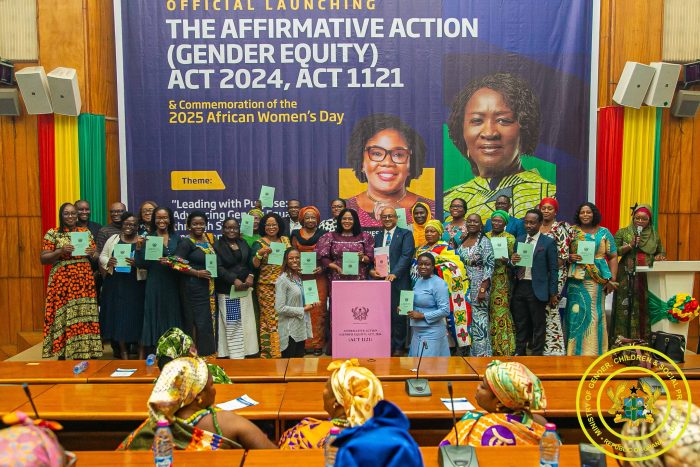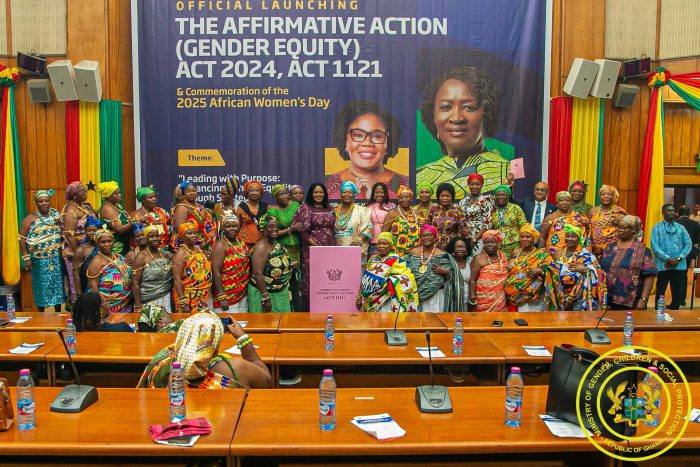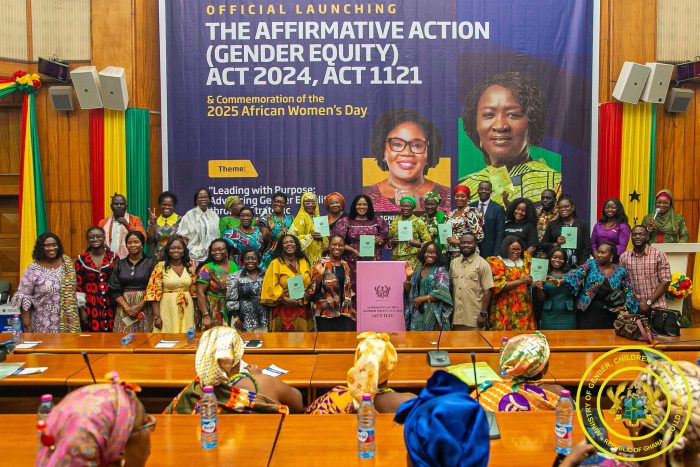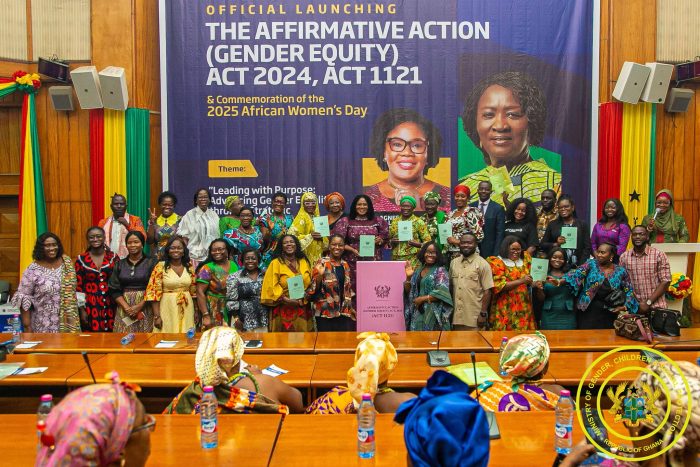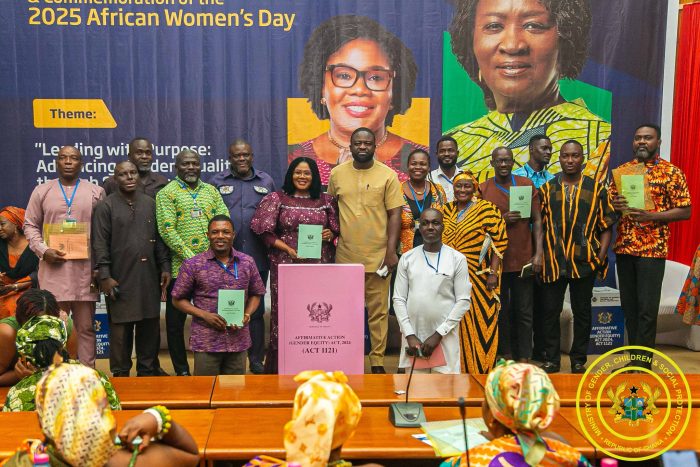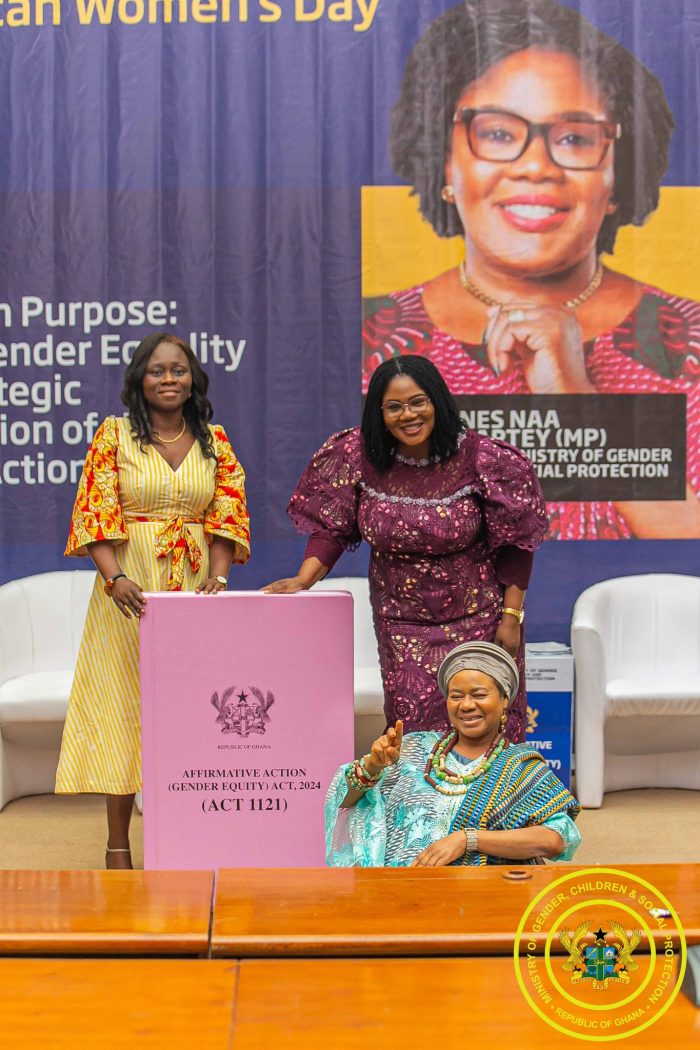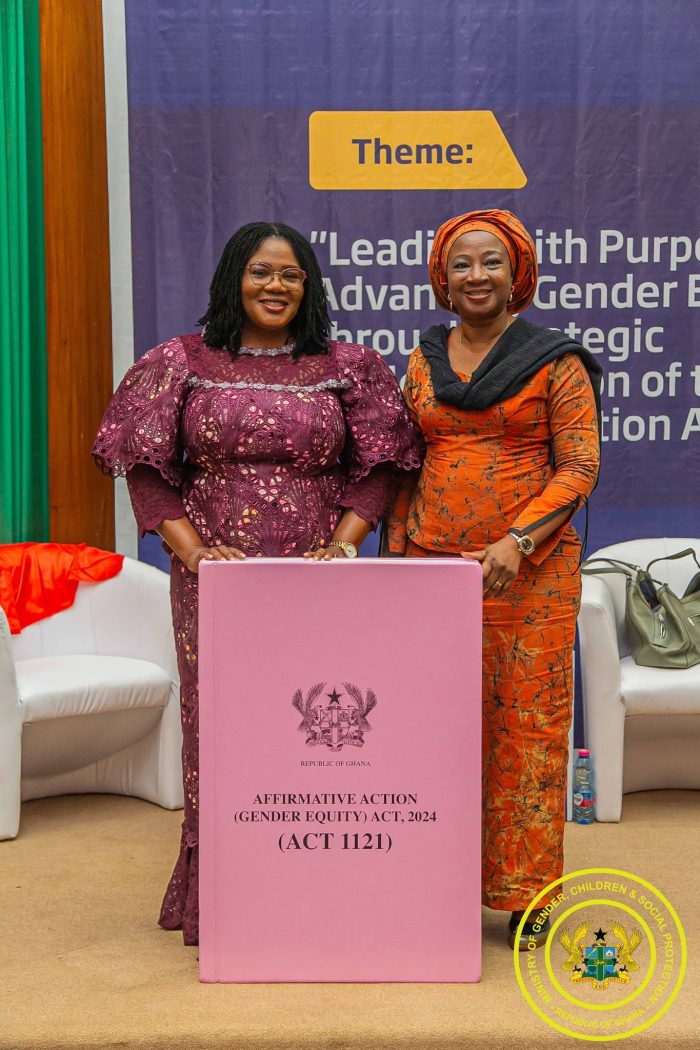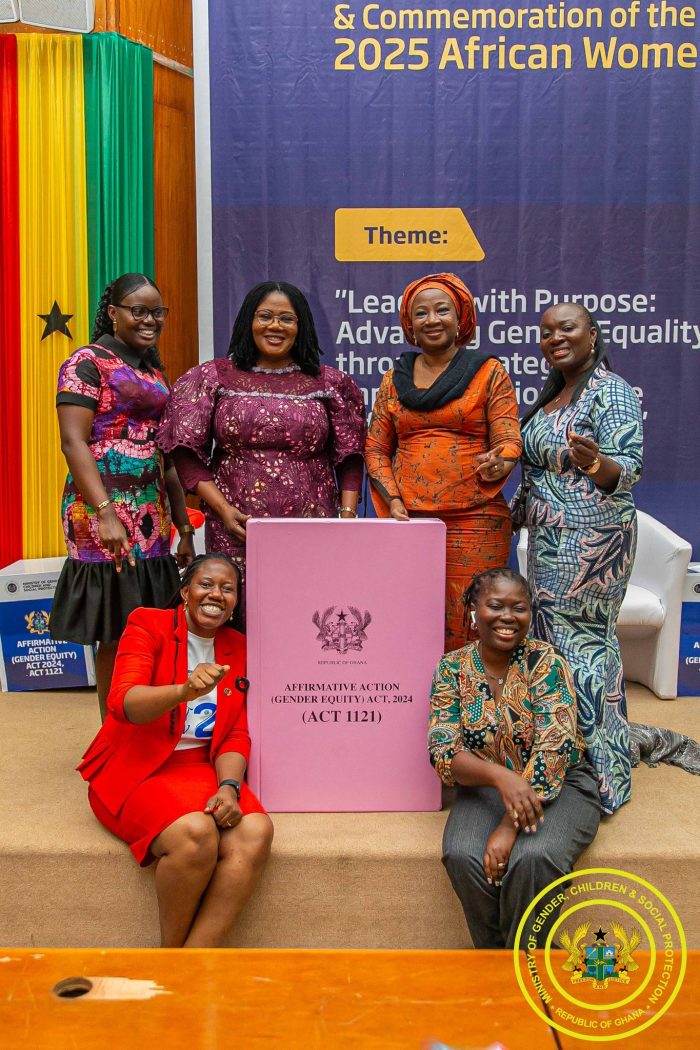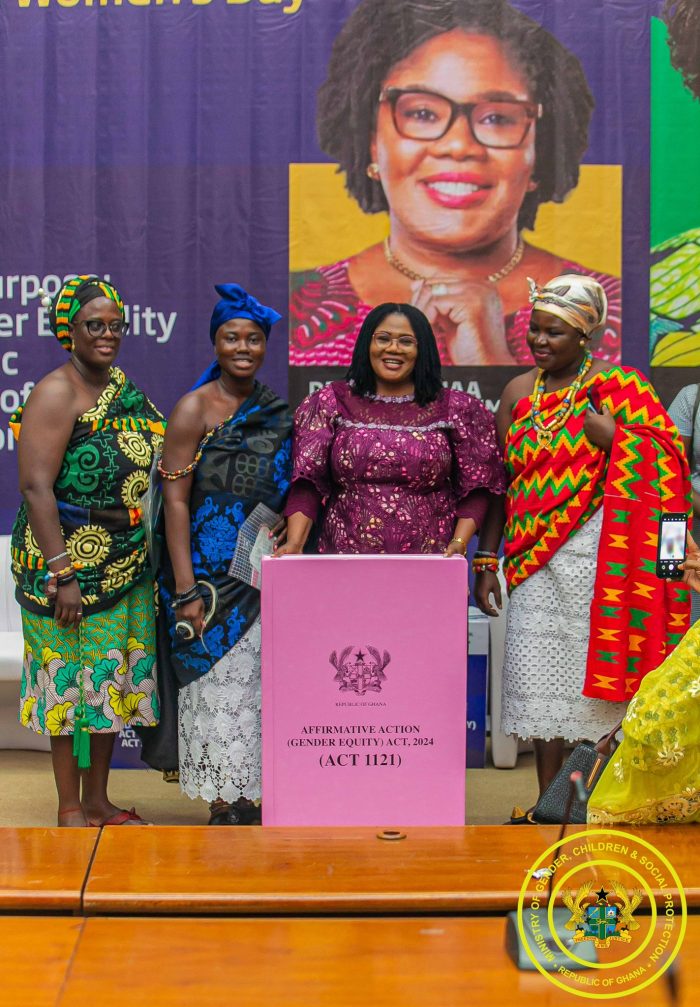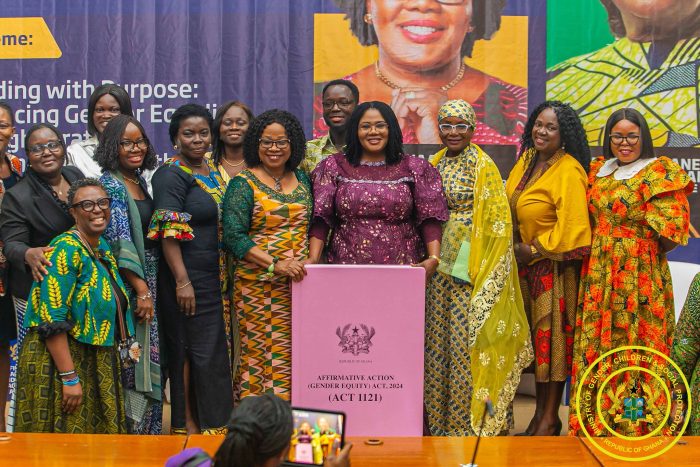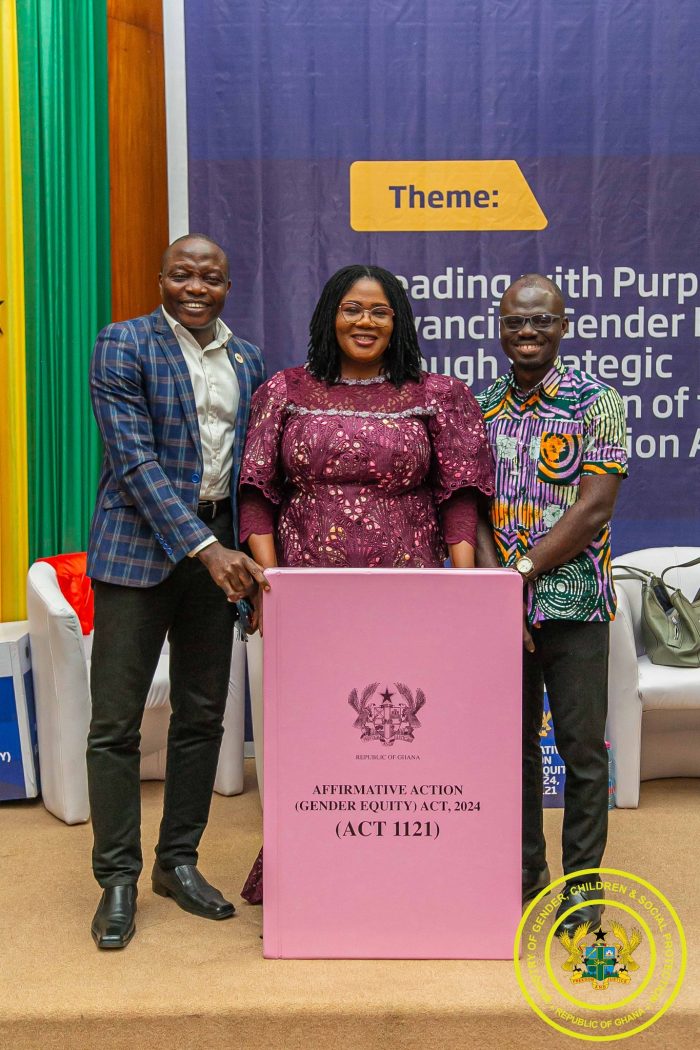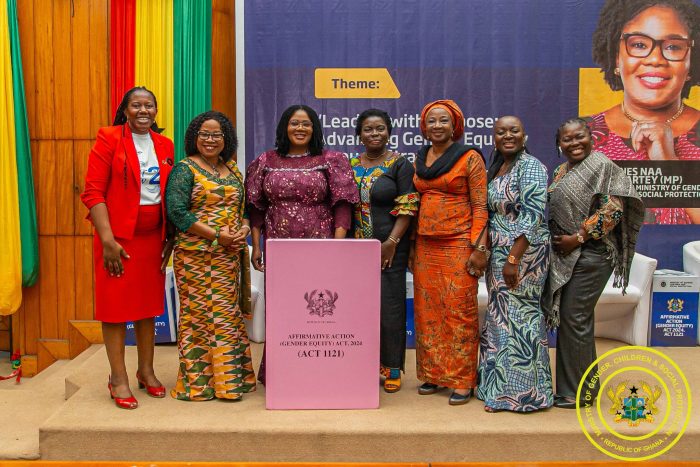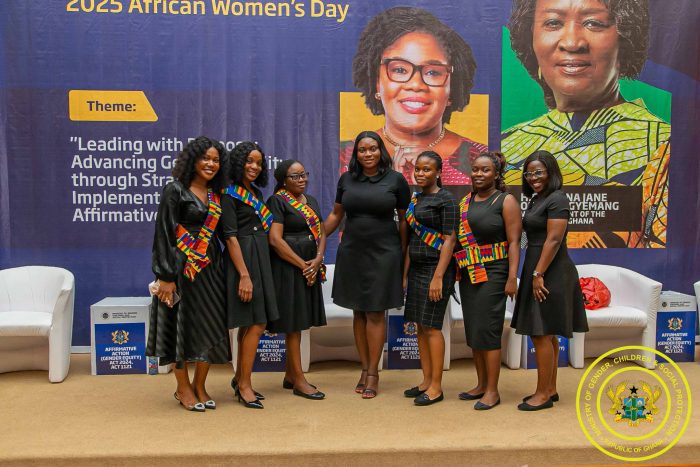MOGCSP LAUNCHES AFFIRMATIVE ACTION ACT TO ADVANCE GENDER EQUALITY IN GHANA
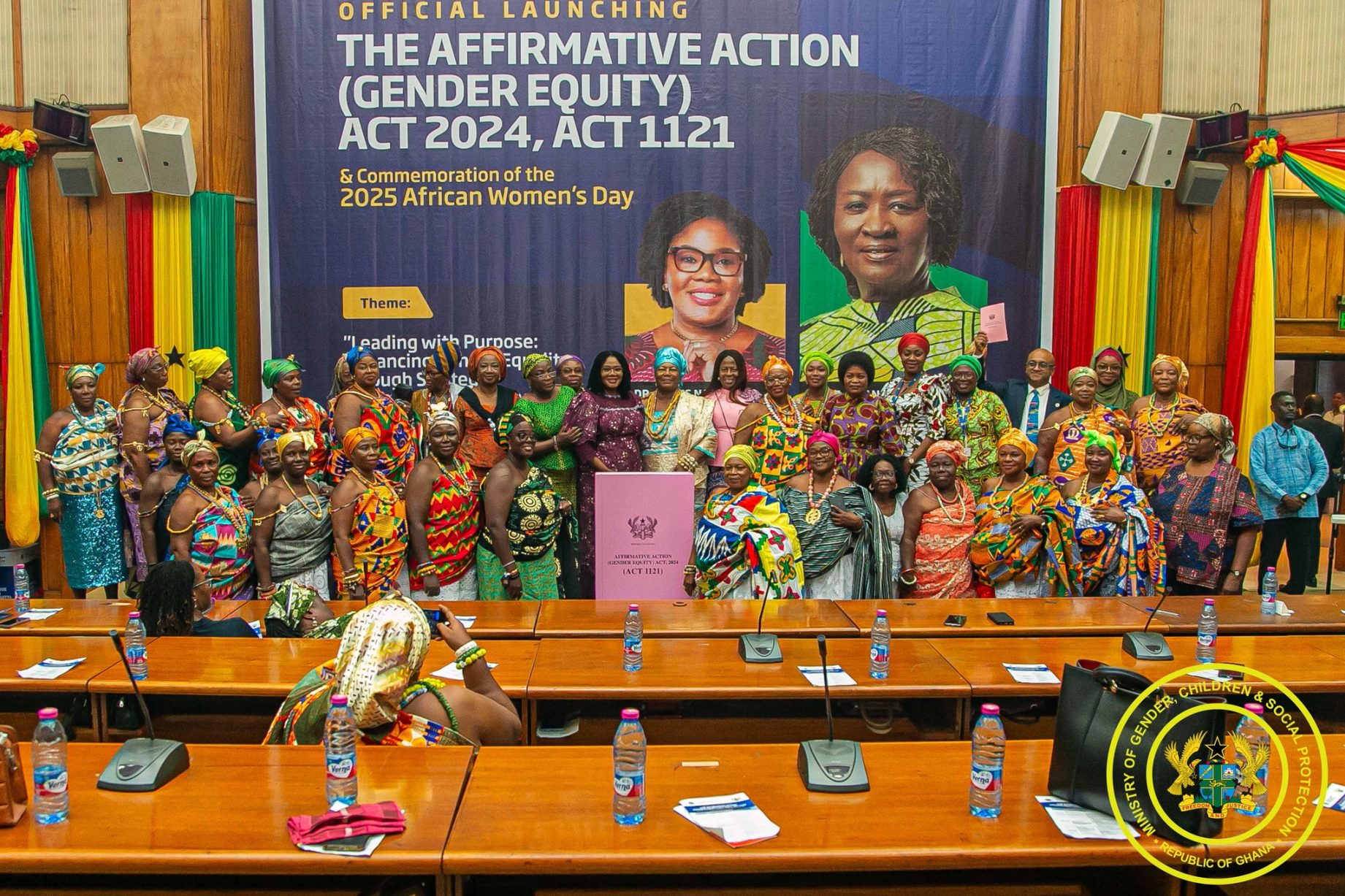
July 30, 2025 2:45 pm
The Ministry of Gender, Children and Social Protection (MoGCSP) on Thursday, 31st July 2025, held a high-level national launch of the Affirmative Action (Gender Equity) Act, 2024 (Act 1121), ushering in a new chapter in Ghana’s commitment to promoting gender equality, inclusive governance, and social transformation.
The event, held at the Accra International Conference Centre, brought together a cross-section of stakeholders including Members of Parliament, civil society organizations, and academia, among others. The launch also coincided with the celebration of Africa Women’s Day, making the occasion especially symbolic and timely.
Themed “Leading with Purpose: Advancing Gender Equity through Strategic Implementation of the Affirmative Action Act, 2024 (Act 1121),” the event highlighted two decades of consistent advocacy and policy dialogue led by the Ministry and supported by key actors across Ghana’s development landscape.
In her welcome remarks, the Minister for Gender, Children and Social Protection, Hon. Dr. Agnes Naa Momo Lartey, described the passage of the Affirmative Action Act as a historic victory for Ghanaian women and a major legislative step toward inclusive national development. She said the law would address the long-standing underrepresentation of women in leadership and called on all sectors to contribute to its successful implementation.
The Minister noted, “The Affirmative Action Act is more than a legal instrument; it is a declaration of our collective will to build a just and equitable Ghana. Its implementation cannot rest solely on government. It demands the active participation of Queen Mothers, civil society, parliamentarians, the media, and community actors.”
She also used the occasion to announce another major development: the recent passage of the Social Protection Bill into law by Parliament. She described this as a crucial milestone that complements the Affirmative Action Act by strengthening the country’s social inclusion agenda.
Delivering the keynote address on behalf of the Vice President, H.E. Prof. Naana Jane Opoku Agyemang, Dr. Miriam Iddrisu, Deputy Policy Advisor at the Office of the Vice President, reaffirmed government’s unwavering commitment to gender justice. She noted that the passage of the Affirmative Action Act was the result of decades of persistence, resilience, and unity among Ghanaian women, civil society groups, and political actors across the divide.
The Vice President, through her representative, emphasized that gender equity is central to the Reset Ghana agenda and aligns closely with the government’s 24-hour economy policy. She reiterated that institutional strengthening, legal awareness, and inclusive participation are essential to unlocking the full potential of the Act.
The United Nations Resident Coordinator, Mr. Zia Choudhry, described the launch as “poignant and symbolic” and commended the Ministry for its bold leadership. He noted that the Act is not only for women, but for the entire nation, as it promotes justice, fairness, and shared progress.
He pledged the continued support of the United Nations towards achieving the goals of the Act.
A panel discussion on the significance and implementation strategies of the Act was held, featuring key resource persons from civil society, academia, and development agencies. Discussions focused on the need for nationwide sensitization, capacity building at all levels of governance, resource mobilization, and effective monitoring systems.
The launch concluded with a renewed sense of national urgency to dismantle barriers to women’s participation in leadership and governance.
Passed in July 2024 and assented to in September of the same year, the Affirmative Action (Gender Equity) Act, 2024 (Act 1121), mandates at least 30% female representation in decision-making roles by 2026, with the goal of reaching full gender parity by 2034. The law also requires public institutions to budget for gender equality programmes and provides legal recourse for victims of gender-based discrimination.
Source: MoGCSP

